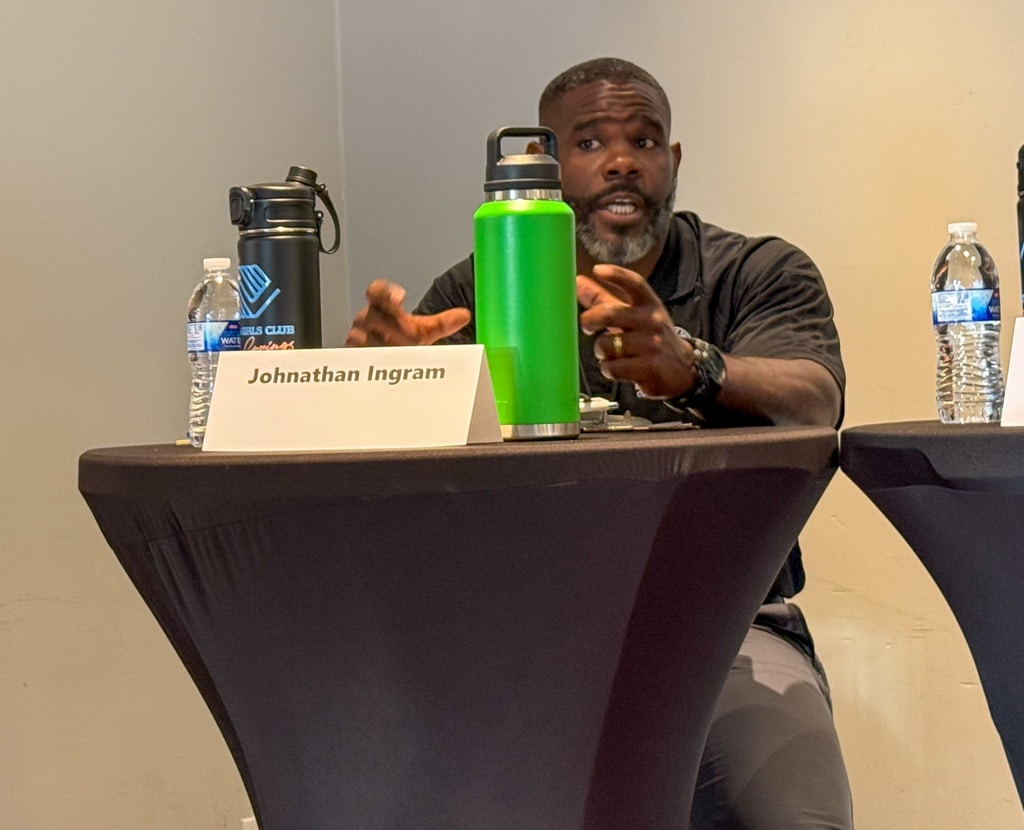At the Palm Springs Boys & Girls Club on Wednesday evening, parents, health professionals, cannabis industry leaders, and law enforcement officials gathered for an open conversation: how to address youth cannabis use in the community.
The town hall, part of the Boys & Girls Club’s new cannabis education initiative, aimed to provide facts, dispel myths, and foster honest dialogue between generations.
“When we started this cannabis education center, I was shocked at how much our kids knew about cannabis and how little the parents knew,” said Margaret Keung, executive director of the Boys & Girls Club, speaking in a refurbished building made possible with grant money received in 2021. “What we’re trying to do here is bridge that gap with information and having that difficult conversation.”
Dr. Navpreet Singh from Desert Regional Medical Center explained cannabis’s impact on developing brains, emphasizing that brain development continues until approximately age 25.
“It works on the hippocampus and initially when someone’s high, they get an extreme appetite and start feeling really good,” Singh said. “But over time, in the long term, while it’s working on our memory and these same receptors, that leads to cognitive decline.”
Singh described how “amotivational syndrome” occurs when cannabis-induced dopamine replaces the natural satisfaction derived from school, sports, and other healthy activities, leading to reduced motivation and academic performance issues.
Julie Montante, owner of 420 Bank dispensary and one of the city’s first medical marihuana license holders, agreed with the doctor’s assessment.
“It does calm down the brain, it does increase appetite, as the doctor said, and some children may or may not need that,” she noted, emphasizing that cannabis should only be administered to youth under professional supervision.

The discussion shifted to how local authorities work to prevent underage access. Lt. Gus Araiza of the Palm Springs Police Department explained that officers partner with code compliance to inspect dispensaries and scrutinize packaging.
“If it appeals to children, that’s something,” Araiza said. “If a family consumes cannabis and they don’t secure it properly, it could easily be mistaken as candy.”
Johnathan Ingram, a cannabis enforcement officer with the city, described security measures required at legal dispensaries, including ID verification systems, restricted access areas, surveillance, child-resistant packaging, and mandatory warning labels.
Rose Wells, a senior at Palm Springs High School, provided attendees with a reality check about cannabis prevalence in schools.
“I think parents don’t know how much their children know,” Wells said. “I go to Palm Springs High School and there is just so much — you see it every single day. You go to the bathrooms, you see it, students walk by you, you smell it. It’s very known. You know where to get it.”
The panel also addressed the challenge of detecting modern cannabis use, particularly with inconspicuous vaping devices resembling everyday items like USB drives.
Moderator Veronica Goedhart, director of Special Program Compliance with the city, shared her personal awakening as a parent:
“Finding out that it was readily available in middle school was shocking to me because my brain just didn’t go there. I was one of those parents who — I’m not gonna deny — was a bit of a helicopter mom. I thought I was very aware of everything my kids were doing.”

Rather than simply condemning cannabis use, panelists encouraged parents to approach the topic with curiosity and empathy. Ingram offered practical advice for parents.
“Why do they need the dopamine boost? Why do they need the high?” he said. “Make the why the conversation and then connect to cannabis. Don’t make cannabis the issue.”
The discussion also highlighted the greater dangers posed by illegal cannabis operations, which lack regulation and oversight.
“When it comes to illegal operations, the sense that we get is that they don’t care who they sell to,” warned Araiza.
One parent in the audience suggested broadening future discussions to address other youth challenges, including social media and screen addiction.
“My concern is that if the panel’s only focused on marijuana, then it feels like it’s kind of being demonized, when it’s really a bigger holistic issue,” she noted.
Keung embraced this feedback, confirming that more events are planned.
“This is definitely going to be the first of many, and we are going to be in front of the parents and urging them to be here for this because it’s important,” she said.



